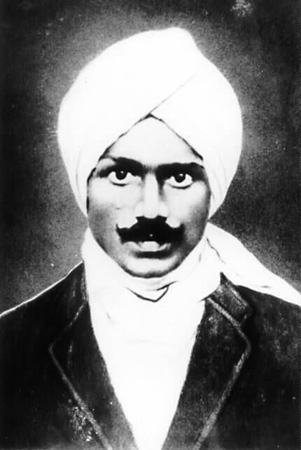Introduction:
Periyar's Philosophy of
Self-Respect:
"Education is the weapon by which we can fight and
win against injustice and inequality."
Periyar, a social
reformer and the architect of the Self-Respect Movement in India, championed
the idea that every individual should uphold their dignity and self-worth. He
believed that education plays a pivotal role in instilling self-respect by
fostering critical thinking and empowering individuals to question societal
norms. In Periyar's vision, education liberates minds from oppressive
ideologies, enabling people to stand tall and resist any form of injustice.
Mahatma Gandhi's Doctrine
of Self-Reliance:
Mahatma Gandhi, a
towering figure in India's struggle for independence, advocated for
self-reliance as a means to achieve personal and collective freedom. Gandhi
believed that individuals should develop skills and capabilities to meet their
needs, reducing dependency on external forces. Education, in Gandhi's
philosophy, not only imparts knowledge but also instills a sense of
responsibility, encouraging individuals to rely on their abilities for
sustenance and progress.
"The best way to find yourself is to lose yourself
in the service of others."
Gandhi's philosophy
extends beyond mere self-sufficiency; it emphasizes the interconnectedness of
self-reliance and service to others. Through education, individuals discover
their strengths, aligning self-reliance with a purposeful existence.
Self-reliance, as
advocated by Mahatma Gandhi, is not just about acquiring practical skills but
also cultivating a mindset that believes in one's potential. The ability to
rely on oneself for solutions builds resilience and fosters a sense of
empowerment. In a world that constantly evolves, self-reliance becomes a
cornerstone for adapting to change, learning new skills, and overcoming
obstacles.
Bruce Lee's Notion of
Self-Expression:
Bruce Lee, a martial
artist and philosopher, emphasized the importance of self-expression as a way
to unlock one's true potential. Lee believed in expressing oneself honestly to
the world, showcasing one's talents and abilities without fear or inhibition. True
self-expression, he argued, stems from understanding oneself and sharing that
authenticity with the world.
"Absorb what is useful, discard what is not, add
what is uniquely your own."
Lee
believed that education involved not just knowledge acquisition but
self-discovery. It fuels the journey toward authentic self-expression, allowing
individuals to contribute their unique gifts to the world.
Conclusion:
The amalgamation of Periyar's self-respect, Gandhi's self-reliance, and Bruce Lee's self-expression creates a powerful philosophy that underscores the importance of self-education in shaping individuals who can navigate life with dignity, resilience, and authenticity. As we tread the path of self-discovery, let us remember the transformative power of learning skills and strive to build a world where every individual is empowered to respect themselves, rely on their capabilities, and express their unique gifts for the betterment of humanity.







0 Comments